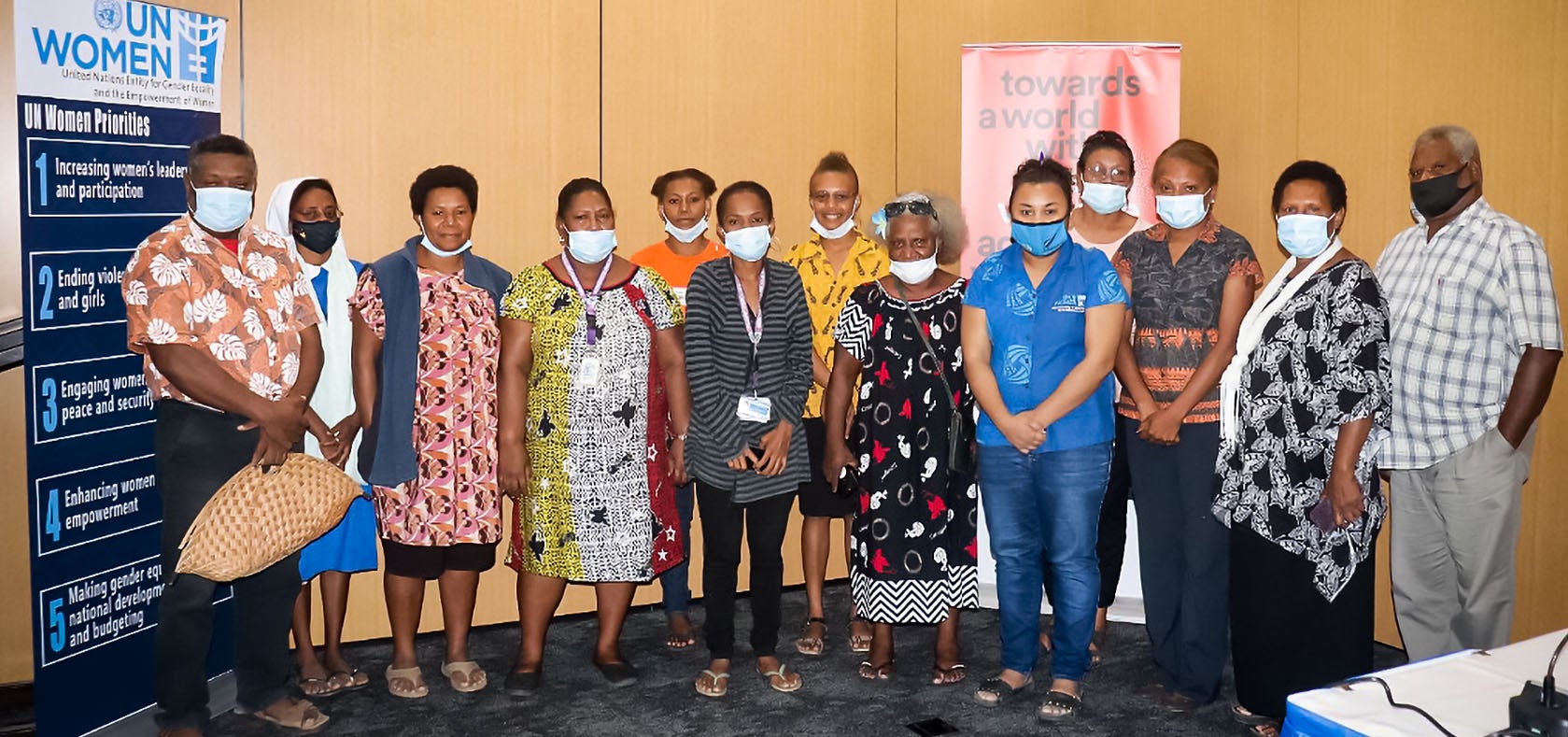Forum discusses financial plight of Papua New Guinea’s civil society organisations
Date:
Author: Aidah Nanyonjo

The tenuous financial situation of civil society organisations (CSOs) in Papua New Guinea, and whether the Government should help by funding them, was discussed at a forum UN Women helped organize to mark International Human Rights Day.
More than 100 civil society and human rights activists and members of faith-based organizations discussed with government and development partners this and other challenges of efforts to promote gender equality and human rights in Papua New Guinea.
UN Women and the Consultative Implementation & Monitoring Council, a government agency, organized the 10 December forum with funding from the European Union-United Nations Spotlight Initiative to end violence against women and girls. The main event was held at APEC Haus in Port Moresby, and satellite events in Lae, Goroka, Mount Hagen and Kokopo cities.
During the forum, CSOs presented a request to the Minister for Community Development and Religion, Wake Goi, for the Government to invest in CSOs and approve the State Civil Society Partnership Policy so that the organizations can receive funding directly from the Government.
They also requested that the Government establish a body to coordinate human rights promotion efforts by the public and private sectors; invest in women’s economic empowerment in order to prevent gender-based violence; and support the violence prevention and response activities of CSOs.
UN Women Country Representative Themba Kalua congratulated the Government for allocating PKG 7.93 million ($2.22 million) in the 2022 national budget to deal with gender-based violence. “Despite the challenges brought about by COVID-19 in 2021, there has been a great deal of momentum in Papua New Guinea in the fight against gender-based violence,” he said. “This momentum gives us, and especially the women who experience violence, a sense of hope that one day, GBV [gender-based violence] in Papua New Guinea will be history.”
Kalua said that stemming the violence requires predictable funding for women’s rights organizations, who often act as first responders. He said UN Women would continue to give Papua New Guinea technical assistance to achieve its Vision 2050 and the United Nations Sustainable Development Goals.
Kiteni Kurika, the director of Youth and Women in Agriculture, a community-based organization, called for government funding as she described how she is easing poverty and gender-based violence by economically empowering youths and women through cocoa, copra, garlic and livestock farming.
“Women and youth economic empowerment projects are mostly funded by donors,” she said. “We need Government to invest in CSOs so that we can sustain these community-based initiatives.”
The Deputy Australian High Commissioner, Paul Lehmann, pledged continued support for CSOs in Papua New Guinea.
He said the Government of Australia directly funded 12 CSOs in its previous Pacific Women programme and would continue funding CSOs in 2022.
The programme “proved that direct approach can also work”, he said. “It has made these civil society organizations grow into strong organizations.”
However the European Union’s delegation Head of Cooperation in Papua New Guinea, Rene Mally, advised CSOs to come up with sustainable ways to manage their operations rather than just depending on the donor funding.
“In Europe, CSOs depend on money from their own initiatives like member contributions,” he said. “This makes them stronger and independent when it comes to holding government to account. The risk of CSOs getting funding from government is likely to compromise their role as watchdogs.”
Jane Kenni, a gender equality activist, spoke of how a small group of women mobilized resources to establish the Family Support Centre at ANGAU Hospital in Lae, Morobe province, with no government funding. It is now the center of excellence for clinical and psychosocial response for survivors of gender-based violence and has been replicated at other provincial hospitals.